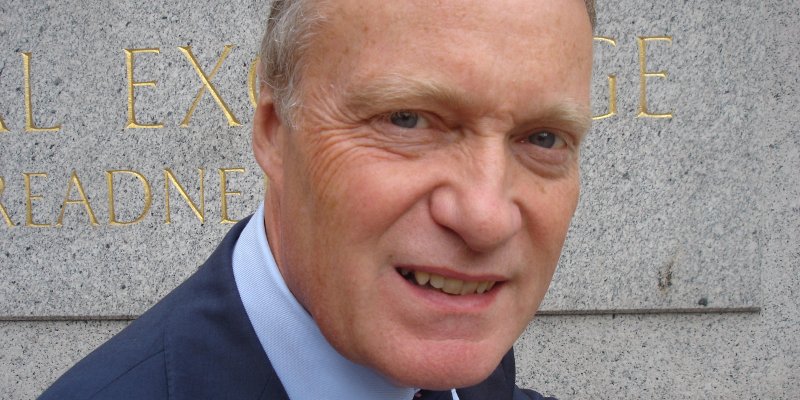This is all too much too soon. Back in May, I wrote that it would be foolhardy to raise rates. My view hasn’t changed against the backdrop of a volatile economy, uncertainty around Brexit negotiations and a hung parliament.

Tony Ward is chief executive of Clayton Euro Risk
So, the Bank of England chose to keep interest rates on hold at 0.25% last week. No surprises there, then.
What was of more interest was the fact that it was an unexpectedly close 5–3 vote by the Bank’s monetary policy committee. Ian McCafferty, Michael Saunders and Kristin Forbes were the three members of the Monetary Policy Committee (MPC) who voted for an increase.
Ms Forbes had been the sole vote in favour of a rise at the MPC's previous two meetings. However, the decision of Mr Saunders and Mr McCafferty to back an increase as well astonished economists.
Mark Carney, the Bank’s governor has repeatedly said that the MPC will ‘look through’ a temporary bout of high inflation caused largely by the fall in sterling since the referendum.
However, the fact that three members of the MPC were prepared to act immediately to subdue inflation seems a change in attitude is afoot. The three who voted to raise rates were swayed by inflation fears, and also took into account growth in ‘business investment and net trade’ which appear ‘on track’ to compensate for weaker consumption.
According to Capital Economics, ‘the more hawkish tone of the MPC appears to reflect some concern about inflation – which has accelerated faster than expected over recent months and is now forecast to exceed 3% this year – as well as the strength of employment that is continuing to erode slack in the labour market’.
Hm. Not so sure about any of that.
The five committee members who voted to leave rates unchanged took into account the recent slowdown in consumer spending and economic growth as a whole. They said it was too early to judge with confidence ‘how large and persistent’ that would be. “It is as yet unclear to what degree weaker consumption would be offset by other components of demand,” the minutes read.
On top of this, City sources are suggesting that the Bank of England’s financial policy committee is looking to discuss the ending of its Term Funding Scheme (TFS), introduced in the wake of last year’s referendum. The TFS, unveiled last August when the Bank lowered rates to 0.25%, was designed to help commercial lenders pass on the benefits of the cut to companies and households. Ditching it would be one way to withdraw some of the emergency stimulus injected by the Bank after the Brexit vote, and is likely to feed through to higher mortgage rates.
This is all too much too soon. Back in May, I wrote that it would be foolhardy to raise rates. My view hasn’t changed against the backdrop of a volatile economy, uncertainty around Brexit negotiations and a hung parliament. There’s also a nasty wage squeeze with 1.7% pay growth being outstripped by rising prices, plus an increase in household debt. That’s just too much uncertainty out there.
And while it would be unwise to leave rates low for longer than needed – I’ve said before that the longer rates are held so low, the longer they support bad, unproductive activity or ‘zombification’ –we still have ramifications of future unwieldy Brexit negotiations and political uncertainty, which could have a negative impact on the economy.
Economists are at odds as to what happens next. Some believe rates will rise sooner than later. “Overall, the MPC’s view appears to be that the UK is set for a period of moderate growth, that spare capacity is limited and that inflationary pressure is greater than expected,” said Philip Shaw, an economist at Investec. “Our verdict is that the MPC is preparing the ground for a rate rise at its next meeting in August.”
Others don’t agree and think that the Bank will be reluctant to lift borrowing costs. “If we want to start the next deflationary cycle in the UK, then crack on and raise rates,” said Chris Iggo of Axa Investment Managers. “That is just what a teetering housing market needs right now – not to mention the impact on consumption and investment as the country starts Brexit negotiations.”
Let’s adopt a watch-and-wait approach. Now is not the time to tinker with interest rates.



